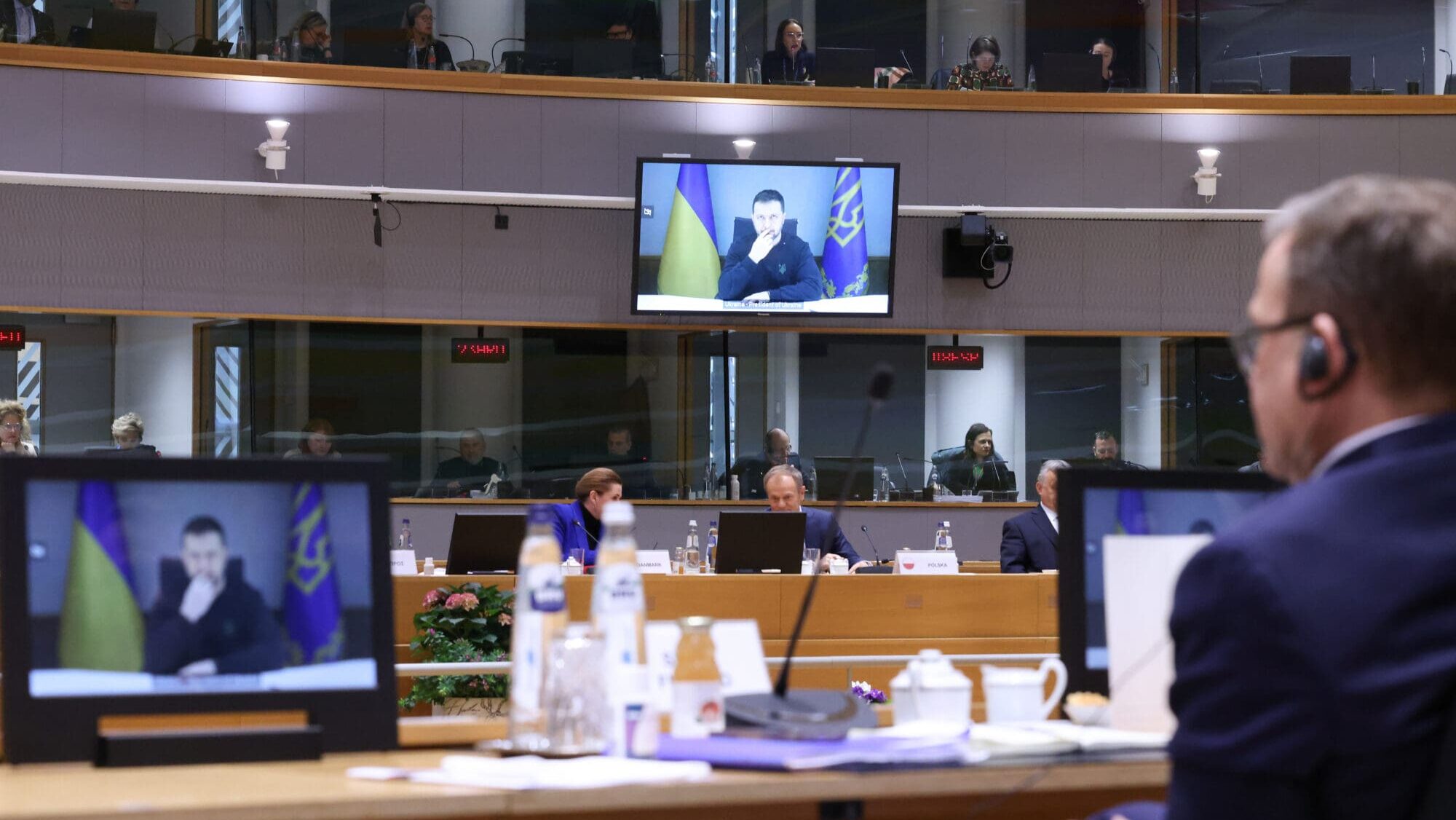
Ukrainian President Zelensky in a video conference with EU leaders in the European Council.
Photo: © European Union
A dozen EU member states have submitted a joint letter to the EU Council’s current Belgian presidency, urging their remaining colleagues to kickstart Ukraine and Moldova’s EU membership talks by adopting their respective accession roadmaps before Hungary takes over the revolving presidency next month.
“We jointly call for the adoption of the negotiating frameworks for Ukraine and Moldova by the General Affairs Council in June at the latest,” the letter, dated June 5th and obtained by Euractive, reads, “in order to convene Intergovernmental Conferences with both countries by the end of June 2024.”
Although the European Council, the EU body comprising representatives of the 27 governments, already ruled that both countries have completed the required pre-conditions, and approved the beginning of the accession process back in December, the talks only commence once a candidate country has its negotiation framework—a specific roadmap of the reforms that are still required to become a full-fledged member—drafted and approved.
“In light of the results achieved and the ongoing reform efforts in both Ukraine and Moldova, which the Commission has previously reported on, we believe that now is the time to move forward,” the letter says, signed by ministers from Czechia, Sweden, Estonia, Finland, Portugal, Latvia, Poland, Lithuania, Germany, Slovenia, Romania, and Slovakia.
Although being one of the main supporters of Moldova’s EU membership, Hungary remains the biggest holdout on Ukraine. Budapest has a long-standing diplomatic dispute with Kyiv about ethnic minorities’ fundamental language rights that have been taken away by Ukrainian legislation in 2017 and 2019 and demands the problem be also addressed by Ukraine’s negotiating framework before it can approve it.
The signatories of the letter are expecting to revisit the issue during the Council’s upcoming general affairs meeting on Friday, June 7th, hoping to persuade Hungary to change its mind.
“Given the dire situation on the ground in Ukraine and the upcoming presidential elections and EU referendum in Moldova, [opening accession negotiations] would boost morale and further the work on reforms in these countries,” they added.
The twelve countries also argued that “to continue [a] credible enlargement process, the EU should provide tangible benefits for the populations of the respective countries” even before the conclusion of the accession process.
“This can be achieved by the gradual integration of Ukraine and Moldova into the European Union, through phasing into individual EU policies and programs before full membership in the EU,” the letter said.
